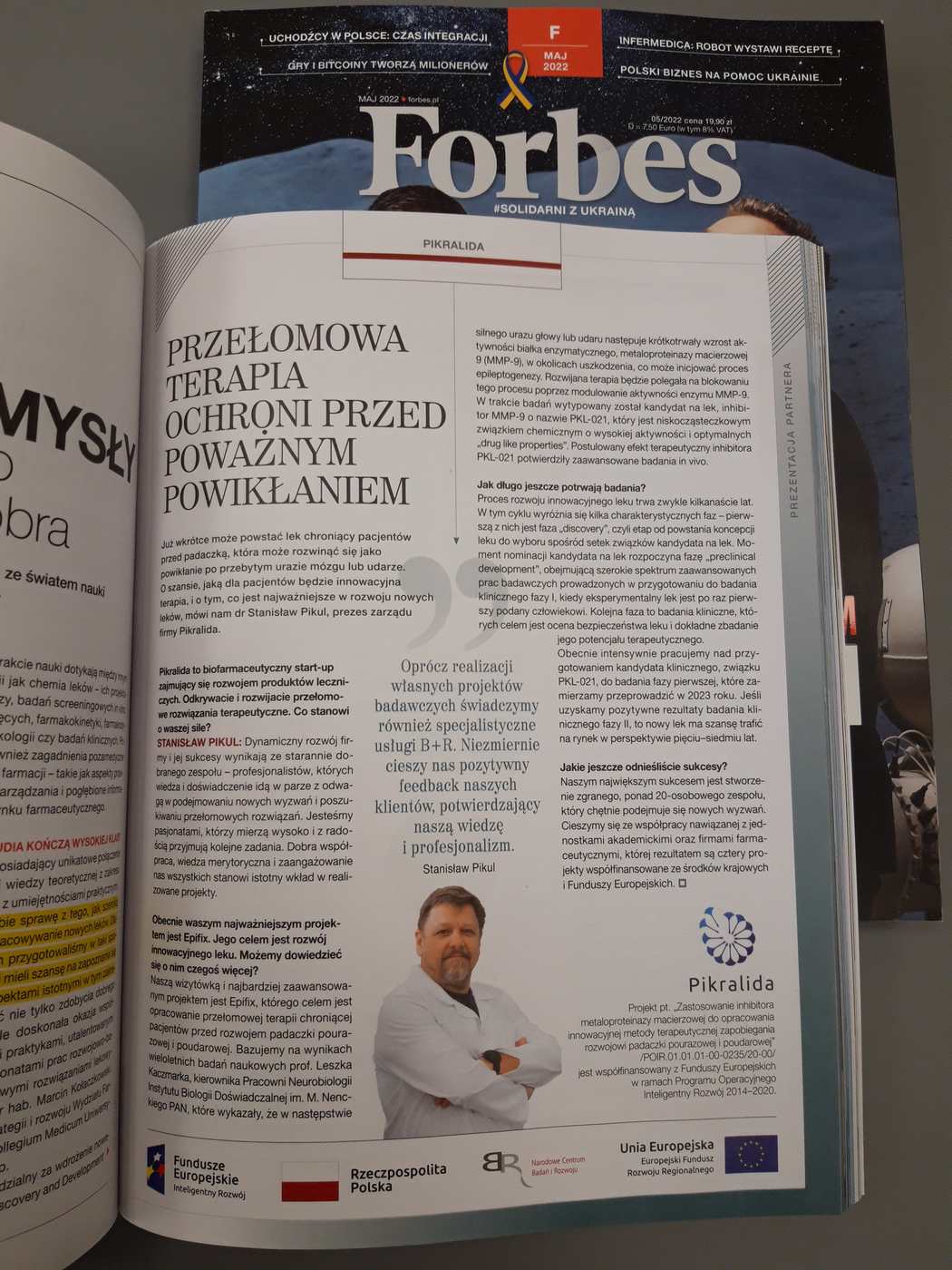A drug may soon provide protection for patients with epilepsy that may develop as a complication of brain injury or stroke. We interview dr Stanisław Pikul, CEO of Pikralida, to learn about the potential this innovative therapy will offer patients as well as the key points of new drug development
Pikralida is a biopharmaceutical start-up that develops medicinal products. You discover and develop breakthrough therapeutic solutions. What’s the secret of your strength?
STANISŁAW PIKUL: The dynamic growth and successes of the company would not be possible if it weren’t for the very deliberately selected team of professionals who combine knowledge and experience with a dauntless spirit that enables them to bravely face new challenges and seek groundbreaking solutions. We are driven by passion, we aim high, and we welcome new quests. The building blocks of our projects include smooth collaboration, expertise and shared commitment.
Currently, your major project is EpiFix, aiming at the development of a novel drug. Could you tell me a bit more about it?
With Epifix, our core, most advanced project, we intend to come up with a breakthrough therapy to protect patients from developing post-traumatic and post-stroke epilepsy. Our work is based on the results of many years of scientific research conducted by Professor Leszek Kaczmarek, head of the Neurobiology Laboratory at the Nencki Institute of Experimental Biology of the Polish Academy of Sciences, which have shown that following a severe head injury or stroke, there is a short-term increase in the activity of an enzymatic protein, matrix metalloproteinase 9 (MMP-9) in the proximity of the injury, which may initiate epileptogenesis. The therapy under development is to block this process by modulating the activity of the MMP-9 enzyme. Research identified a drug candidate, an MMP-9 inhibitor called PKL-021, a low molecular weight chemical compound with high activity and optimal drug like properties. The presumed therapeutic effect of the PKL-021 inhibitor was confirmed by extensive in vivo studies.
How much longer is the research going to take?
It usually takes several years to develop a novel drug. The cycle comprises several characteristic steps, with the first being the discovery phase, i.e. the stage from conceiving a drug to selecting a drug candidate from hundreds of compounds. The preclinical development stage, which starts when the drug candidate is identified, encompasses a wide spectrum of advanced research work carried out as a preparation for Phase I clinical trial, when the experimental drug is first administered to human subjects. The next stage consists in clinical trials designed to evaluate the safety of the drug and to investigate in depth its therapeutic potential. We are currently involved in intensive work with the intention to prepare a clinical candidate, compound PKL-021, for a Phase I trial, which we intend to conduct in 2023. If we obtain positive results from the Phase II clinical trial, the new drug may well enter the market within 5 to 7 years.
What are your other achievements?
Our greatest success is that we brought together a tight-knit team of over 20 people, all looking forward to taking on new challenges. We are glad that we have the opportunity to work with academic institutions and pharmaceutical companies, a cooperation that gave rise to four projects co-financed by Polish and European funds.
The project entitled “Use of matrix metalloproteinase inhibitor to develop an innovative therapy of preventing the development of post-traumatic and post-stroke epilepsy” /POIR.01.01.01-00-0235/20-00/ is co-financed by European Funds under the Smart Growth Operational Programme 2014-2020.

Not only we conduct our own research projects; we also provide specialist R&D services. We heartily welcome the positive feedback from our Clients – the best evidence of our expertise and competence.
Stanisław Pikul

